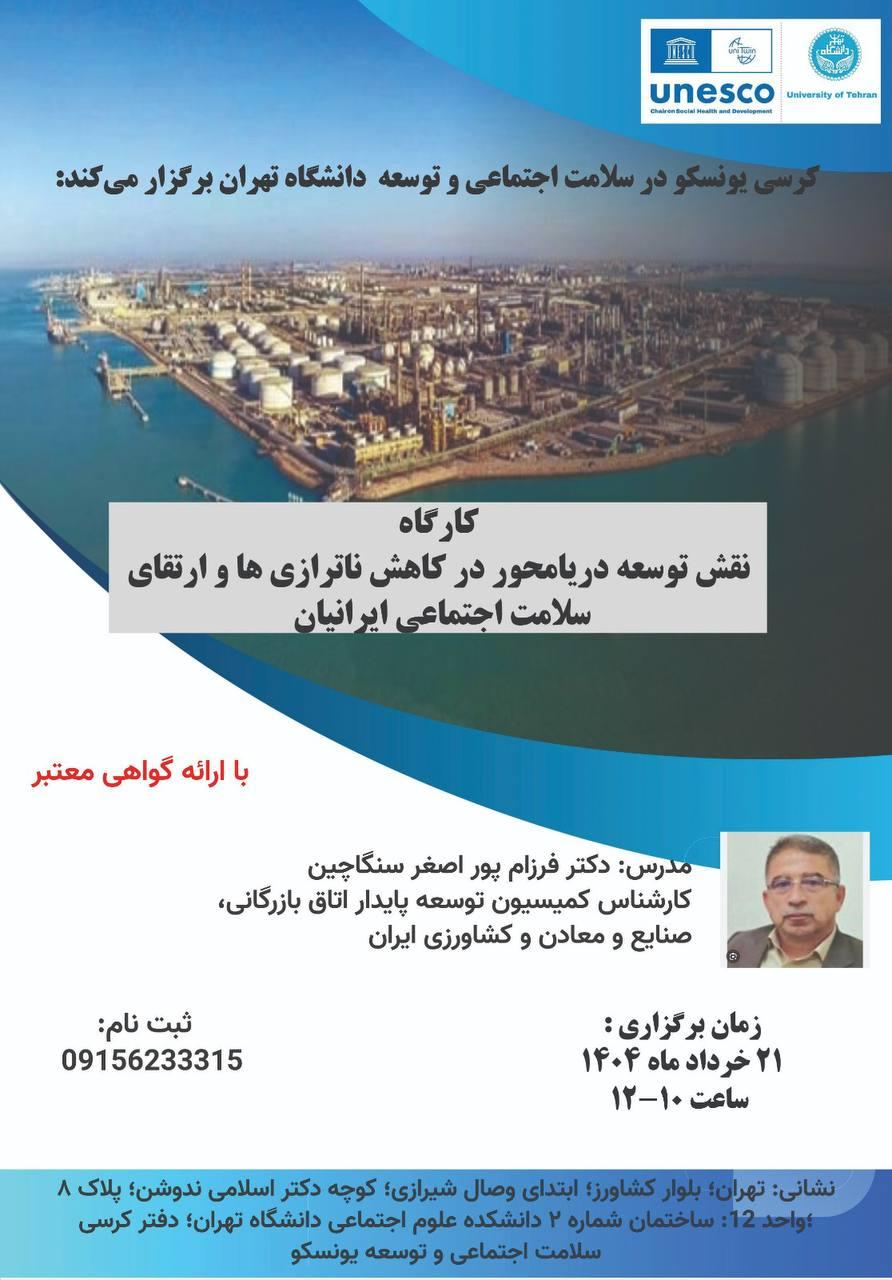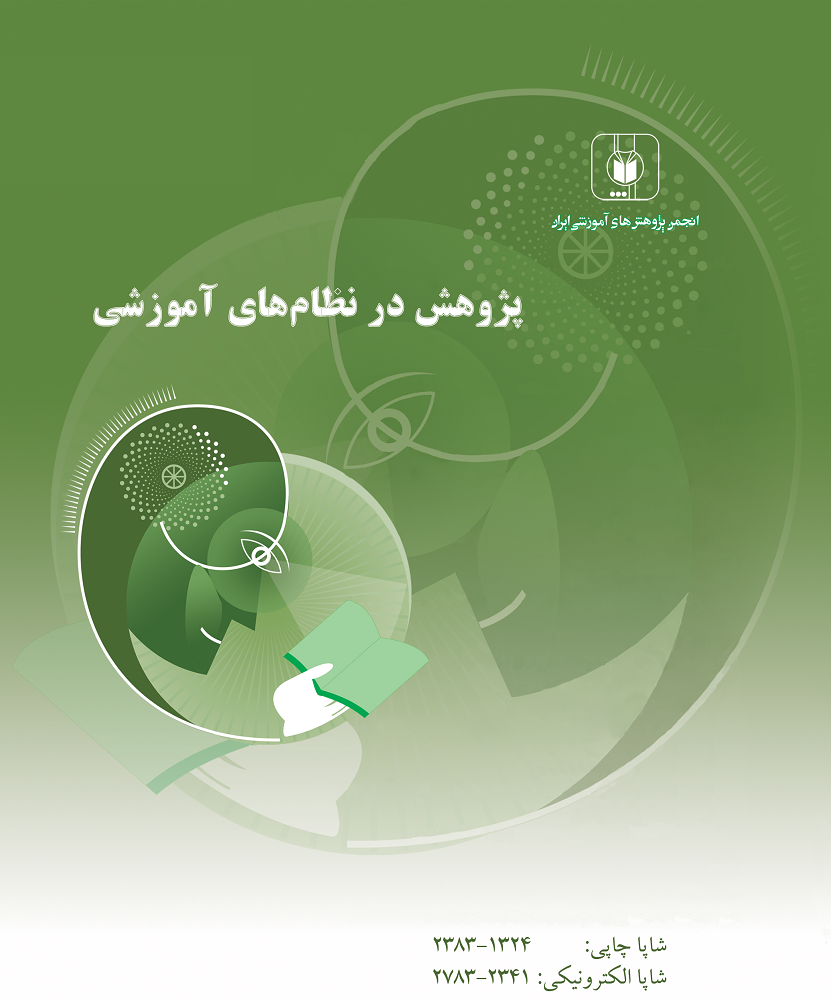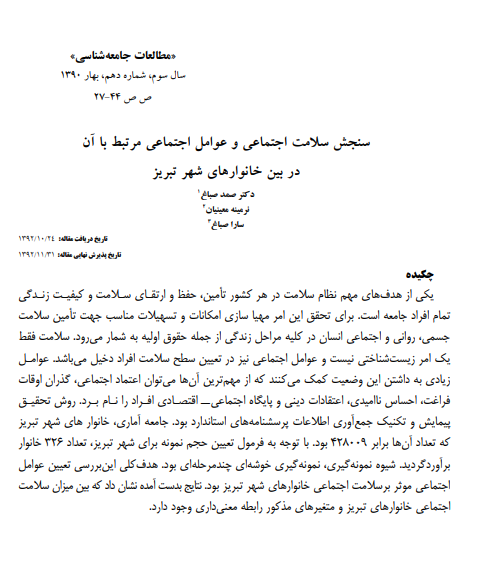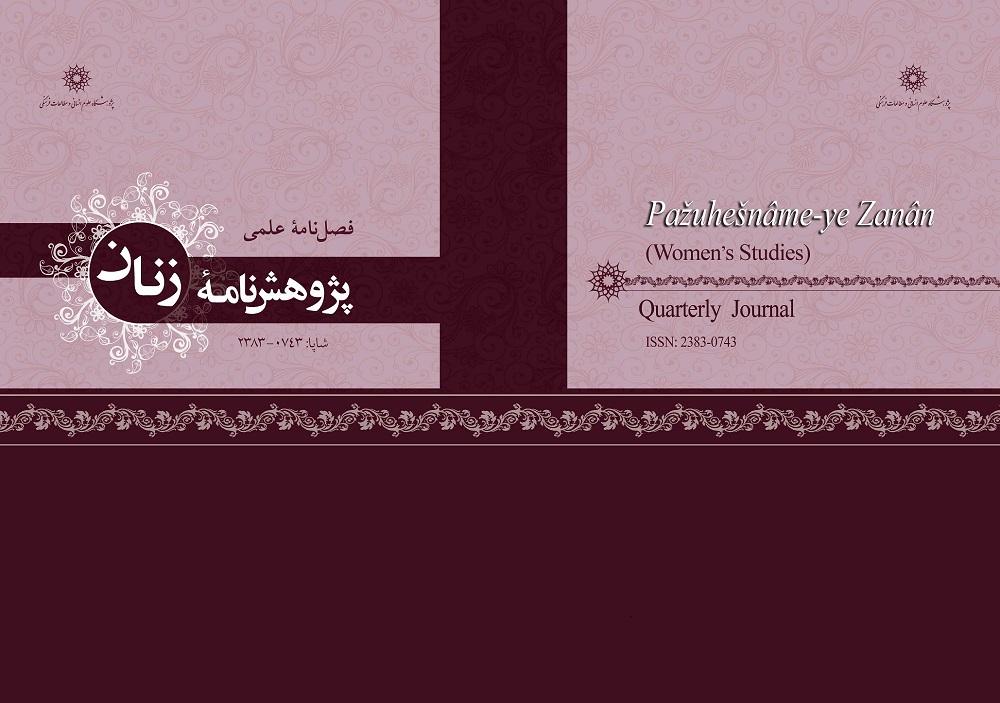Social Health in Iran: From Consensus-Based Definition to Evidence-Based Index - کرسی یونسکو در سلامت اجتماعی و توسعه ucshd
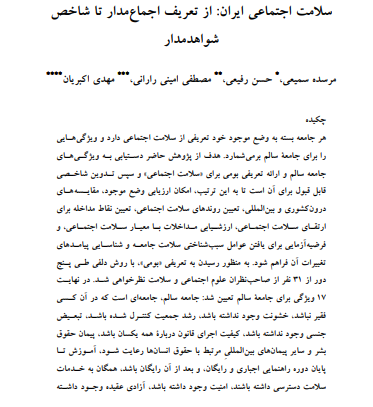
Social Health in Iran: From Consensus-Based Definition to Evidence-Based Index
Social Health in Iran: From Consensus-Based Definition to Evidence-Based Index
01 01 2024 10:33
News Code : 93870361
View Count : 9
Abstract: (Original article)
Each society has a definition of social health depending on its current situation and lists characteristics for a healthy society. The aim of the present study is to achieve the characteristics of a healthy society and provide a local definition for "social health" and then develop an acceptable index for it, so that it is possible to assess the current situation, make domestic and international comparisons, determine social health trends, determine intervention points to promote social health, evaluate interventions with social health criteria, and test hypotheses to find the etiological factors of community health and identify the consequences of its changes. In order to reach a "local" definition, 31 experts in social sciences and health will be consulted using the Delphi method in five rounds. Finally, 17 characteristics were determined for a healthy society: A healthy society is a society in which no one is poor, there is no violence, population growth is controlled, there is no gender discrimination, the quality of law enforcement is the same for everyone, the Human Rights Convention and other international treaties related to human rights are observed, education is compulsory and free until the end of the middle school, and free after that, everyone has access to health services, there is security, there is freedom of belief, people feel satisfied with their lives, all people are covered by insurance, income distribution is fair, there is no unemployment, there is no ethnic, racial, and regional discrimination, the government has legitimacy among the people, rulers are democratically elected, and after being elected, they are under the supervision of the people. To empirically test the aforementioned definition (determining the construct validity) and also to achieve a composite index for social health, available information on 6 indicators of population growth, intentional homicide, poverty, unemployment, insurance coverage, and literacy from 30 provinces of the country in 2007 was analyzed using exploratory factor analysis, and thus two The components of low social resilience (including population growth, poverty, insurance coverage, and literacy) and social problems (including unemployment and murder) were obtained, which can explain 68.3 percent of the variance of the "Iranian social health" construct. Accordingly, a healthy society is one that is robust and has few problems, meaning that education and insurance coverage are high, and population growth, poverty, violence, and unemployment are low. It is necessary to provide stronger empirical evidence for this construct in future research by including more indicators. At the same time, periodic measurement of Iran's social health and determining its trends at the national level and in various social groups are the most important research that can be suggested for the future. Also, improving education and insurance, controlling the population, and reducing poverty, violence, and unemployment are the most important measures that can be suggested based on this research to improve Iran's social health.



